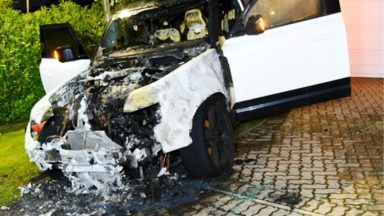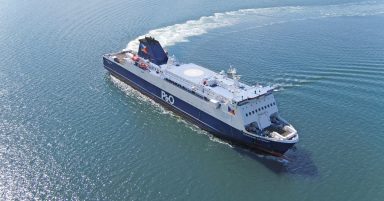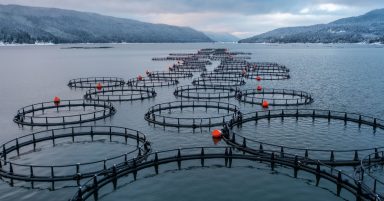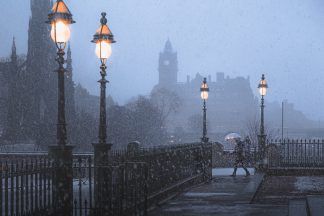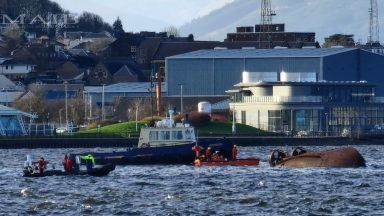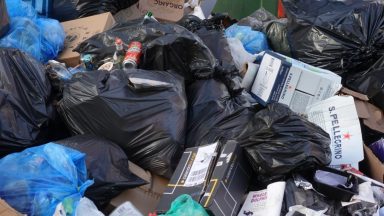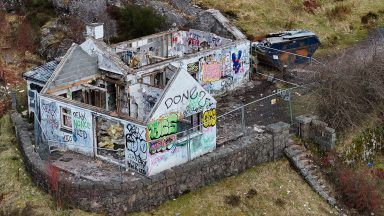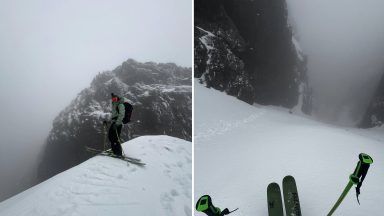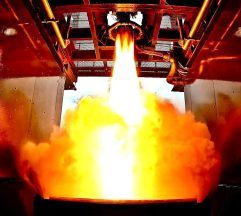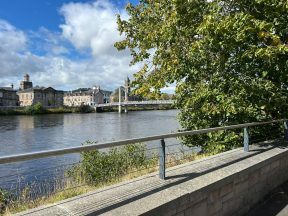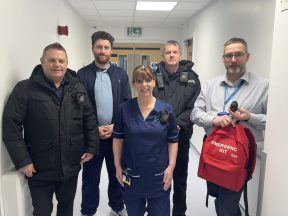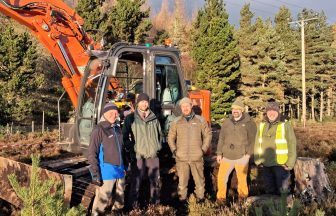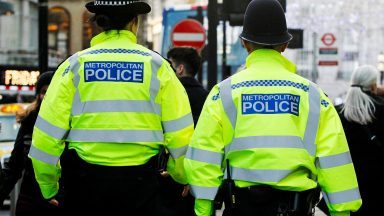The actions of a “brave” co-pilot who armed the floats of a helicopter just before it plunged into the sea saved lives, an inquiry heard.
Captain Alan Findlay, a search and rescue helicopter pilot, said Alan Bell showed “great presence of mind” when he triggered the devices that prevented it from sinking.
Two crew members and 12 passengers on the Super Puma L2 survived when it ditched on its approach to Sumburgh Airport in Shetland at 6.17pm on August 23, 2013.
But Sarah Darnley, 45, from Elgin; Gary McCrossan, 59, from Inverness; Duncan Munro, 46, from Bishop Auckland, County Durham, and George Allison, 57, from Winchester, Hampshire, died.
Captain Findlay, who worked at helicopter firm CHC at the time of the crash, praised Mr Bell’s actions before the impact.
He told the fatal accident inquiry (FAI): “It saved people’s lives. By arming the floats it then meant that they would automatically deploy on water contact.
“If the floats were not armed and the aircraft hit the water then the floats would not have deployed automatically.”
Captain Findlay, a witness for the Crown, prepared a report on the crash with three other pilot experts for the FAI, which is being held virtually due to coronavirus measures.
Commenting on Mr Bell’s actions, he said: “It had a very significant effect on the survivability of the crash.
“We all felt it was noteworthy that in a very short period of time realising that things were going very badly wrong he was able to do that very important action, it showed a good presence of mind.”
He added: “That was by far the most important thing that he could to do affect and alter the circumstances that he found himself in.”
Survivor Samuel Bull took his own life in London in 2017, which sheriff principal Derek Pyle said was “directly caused” by the crash.
An AAIB report published in 2016 found the pilots failed to properly monitor the flight instruments and failed to notice their speed was decreasing until it was too late to avoid the Super Puma plunging into the sea.
David Adams, representing the Darnley family, said the helicopter dropped from a speed of 80 knots to 35 knots over 30 seconds and asked who had responsibility for monitoring the speedometer.
Captain Findlay, who was giving evidence from Australia, said the pilot flying had 100% responsibility for looking at the instrument while the pilot non-flying would look whenever he was able to look amid his other responsibilities.
A statement of agreed evidence read at the start of the inquiry confirmed that no mechanical fault was discovered with the helicopter, which was returning from the Borgsten Dolphin support vessel to Sumburgh Airport when it ditched.
The inquiry continues.
Follow STV News on WhatsApp
Scan the QR code on your mobile device for all the latest news from around the country







